COP26: Somerset seeds from suffragette pine tree given to delegates
- Published
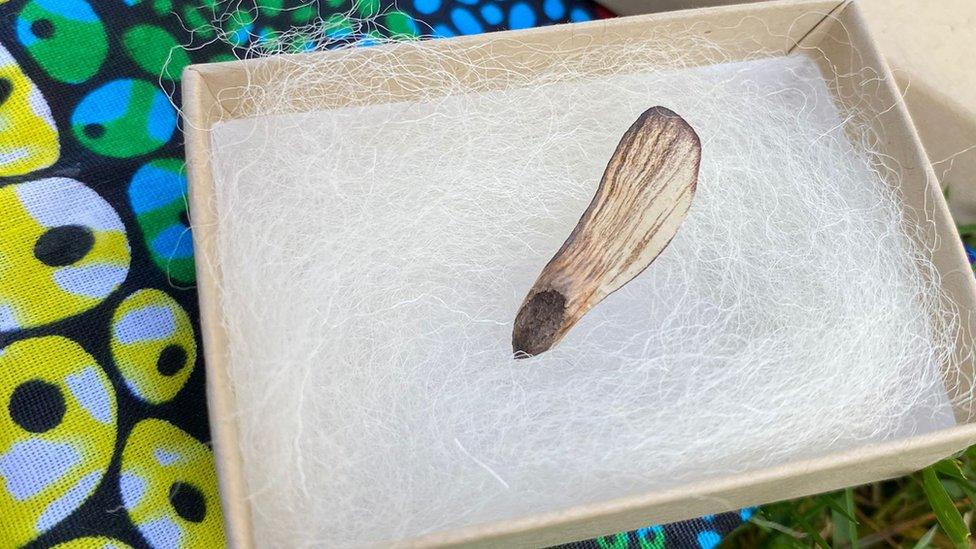
Activists from the Walking Forest project have propogated the seeds from the tree
Seeds from the only surviving black pine tree planted by suffragettes are to be given to COP26 summit delegates.
Suffragettes planted an arboretum of 47 trees in Batheaston, Somerset 112 years ago, each representing an activist.
But only one tree, planted by Rose Lamartine Yates in 1909, has survived after the others were bulldozed over to make room for housing in the 1960s.
The project's leaders said the seeds will "give strength to those fighting for the future of the planet".
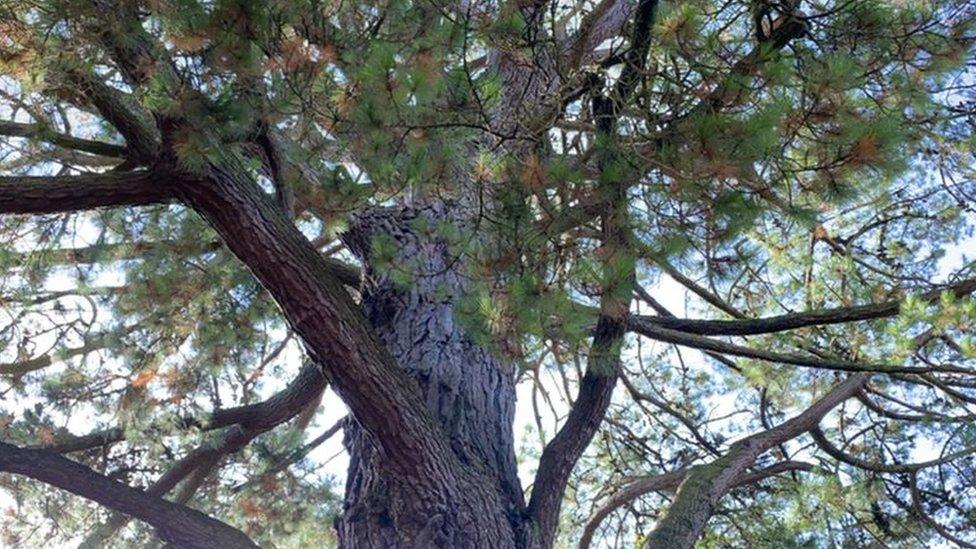
The black pine tree is the last one from an arboretum that once held 47 trees
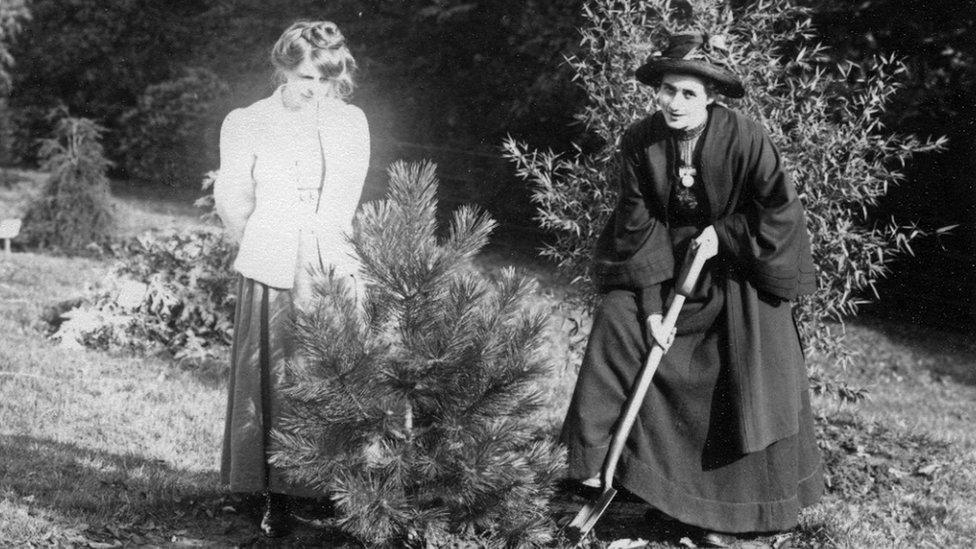
The black pine was planted in 1909 by Rose Lamartine Yates
More than 60 suffragettes stayed with the Blathwayt family near Bath after they were imprisoned, and force fed, for their political activism.
During their stay, the women were encouraged to plant trees as a symbol of their hopes for political equality.
Eileen Paddock is the custodian of the last black pine tree, that can be found on the grounds of her home.
"They [the suffragettes] used to come to Eagle House, which is a house at the bottom of the road, and recover, and when they'd recovered enough they planted a tree to commemorate," she said.
"Conservation wasn't such a big thing then [in the 1960s] and they were all mowed down, so this is the only survivor because it's on the boundary."
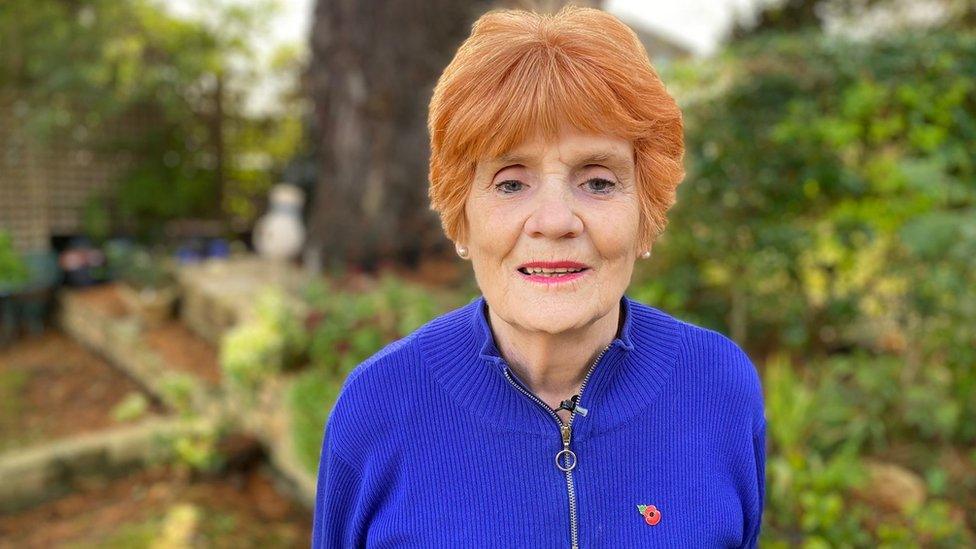
Ms Paddock said all of the other trees were "mowed down"
Artists and activists from an Arts Council funded project, Walking Forest, external, have since propagated the last tree's seeds.
Walking Forest member Lucy Neal said: "The seed from Rose's tree gives earth defenders the sense of possibility that Rose had when she planted it and dug the earth.
"The future of that tree and the legacy of the seed is to encourage and give strength to people fighting for the future of life on this planet."
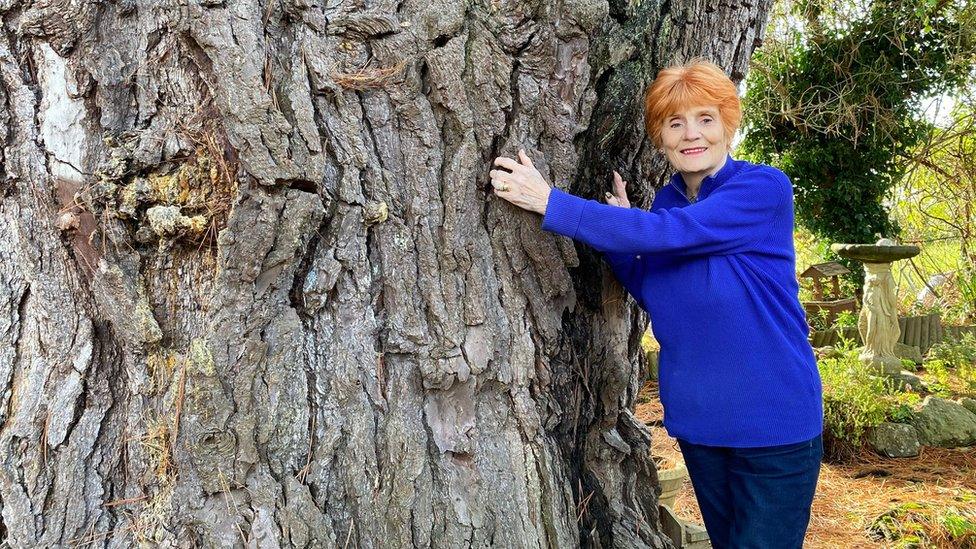
Ms Paddock has been looking after the tree that stands on the grounds of her home
Concordia University professor of feminism and art history, Dr Cynthia Hammond, from Montreal, Canada, has been researching the trees and was able to work out whose tree it was because only one Austrian pine had been planted for a suffragette.
"It is a living link to 100 years of feminist history and it's incredibly precious," she said.
"Simply because it is a tree on private property does not mean it isn't collective heritage, so I'm very grateful to Eileen Paddock for being its guardian all these years and fighting for its continued survival."

Follow BBC West on Facebook, external, Twitter, external and Instagram, external. Send your story ideas to: bristol@bbc.co.uk , external
Related topics
- Published1 November 2021

- Published17 October 2021

- Published5 August 2021
